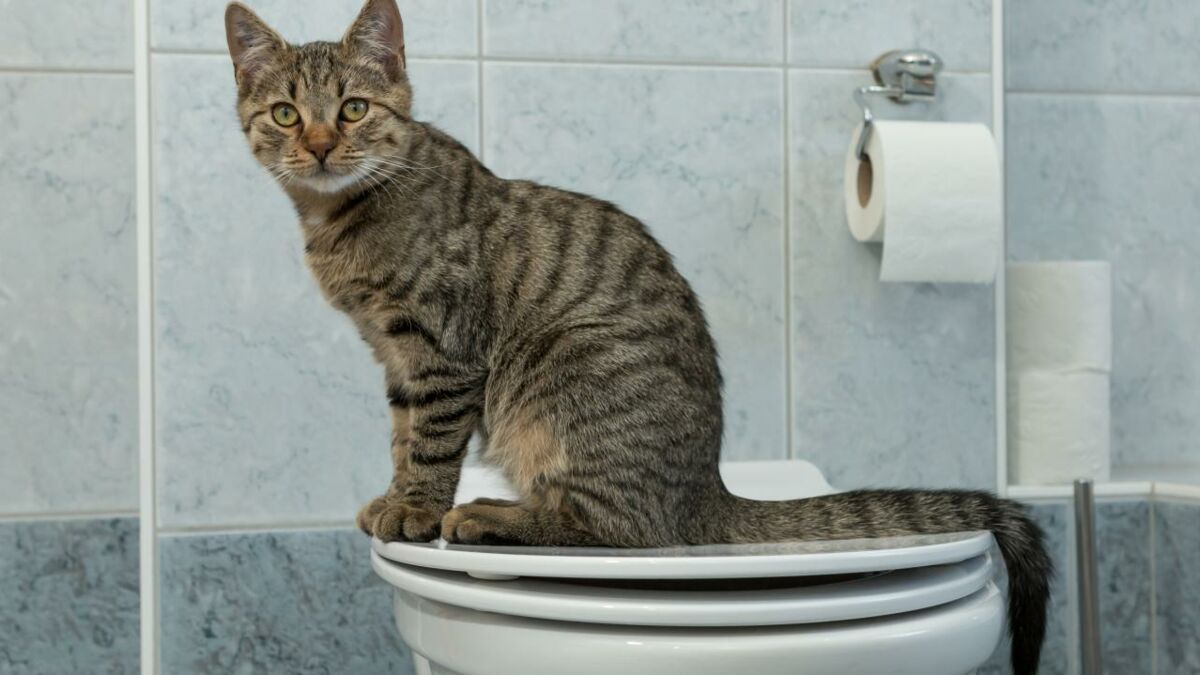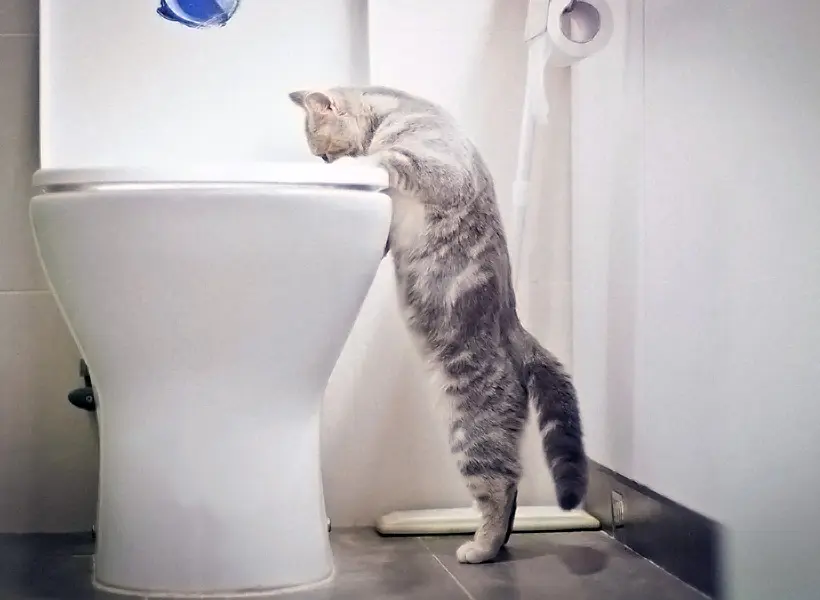Why You Should Never Flush Cat Poop Down Your Toilet - Important Facts
Why You Should Never Flush Cat Poop Down Your Toilet - Important Facts
Blog Article
On this page down the page you can discover additional dependable information and facts relating to Don’t flush cat feces down the toilet.

Intro
As pet cat proprietors, it's important to bear in mind how we take care of our feline pals' waste. While it may seem hassle-free to flush cat poop down the toilet, this method can have harmful consequences for both the setting and human health and wellness.
Ecological Impact
Flushing cat poop introduces dangerous microorganisms and parasites right into the supply of water, positioning a considerable risk to water ecosystems. These pollutants can adversely affect marine life and concession water high quality.
Health and wellness Risks
Along with ecological worries, flushing cat waste can additionally pose health and wellness threats to people. Cat feces may contain Toxoplasma gondii, a bloodsucker that can trigger toxoplasmosis-- a possibly serious ailment, specifically for expecting ladies and individuals with damaged immune systems.
Alternatives to Flushing
Thankfully, there are much safer and much more liable ways to throw away feline poop. Take into consideration the following choices:
1. Scoop and Dispose in Trash
One of the most typical technique of disposing of pet cat poop is to scoop it right into a biodegradable bag and toss it in the garbage. Be sure to utilize a devoted litter scoop and get rid of the waste without delay.
2. Use Biodegradable Litter
Select biodegradable feline litter made from materials such as corn or wheat. These clutters are environmentally friendly and can be safely taken care of in the garbage.
3. Hide in the Yard
If you have a backyard, think about burying cat waste in an assigned location far from veggie gardens and water sources. Be sure to dig deep sufficient to avoid contamination of groundwater.
4. Set Up a Pet Waste Disposal System
Buy a pet dog waste disposal system especially made for pet cat waste. These systems use enzymes to break down the waste, lowering odor and environmental impact.
Conclusion
Accountable animal possession extends past providing food and sanctuary-- it likewise involves correct waste administration. By avoiding purging cat poop down the bathroom and going with alternative disposal techniques, we can lessen our ecological impact and safeguard human wellness.
Why You Should Never Flush Cat Poop Down the Toilet
A rose by any other name might smell as sweet, but not all poop is created equal. Toilets, and our sewage systems, are designed for human excrement, not animal waste. It might seem like it couldn’t hurt to toss cat feces into the loo, but it’s not a good idea to flush cat poop in the toilet.
First and foremost, assuming your cat uses a litter box, any waste is going to have litter on it. And even the smallest amount of litter can wreak havoc on plumbing.
Over time, small amounts build up, filling up your septic system. Most litter sold today is clumping; it is made from a type of clay that hardens when it gets wet. Ever tried to scrape old clumps from the bottom of a litter box? You know just how cement-hard it can get!
Now imagine just a small clump of that stuck in your pipes. A simple de-clogger like Drano isn’t going to cut it. And that means it’s going to cost you big time to fix it.
Parasitic Contamination
Believe it or not, your healthy kitty may be harboring a nasty parasite. Only cats excrete Toxoplasma in their feces. Yet it rarely causes serious health issues in the cats that are infected. Most people will be fine too if infected. Only pregnant women and people with compromised immune systems are at risk. (If you’ve ever heard how women who are expecting are excused from litter cleaning duty, Toxoplasma is why.)
But other animals may have a problem if infected with the parasite. And human water treatment systems aren’t designed to handle it. As a result, the systems don’t remove the parasite before discharging wastewater into local waterways. Fish, shellfish, and other marine life — otters in particular — are susceptible to toxoplasma. If exposed, most will end up with brain damage and many will die.
Depending on the species of fish, they may end up on someone’s fish hook and, ultimately on someone’s dinner plate. If that someone has a chronic illness, they’re at risk.
Skip the Toilet Training
We know there are folks out there who like to toilet train their cats. And we give them props, it takes a lot of work. But thanks to the toxoplasma, it’s not a good idea.

Do you like reading up on How to Dispose of Cat Poop and Litter Without Plastic Bags? Make feedback below. We will be pleased to hear your ideas about this piece. In hopes that you come back again later on. If you enjoyed reading our blog posting if you please do not forget to pass it around. We recognize the value of reading our article about How to Dispose of Cat Poop and Litter Without Plastic Bags.
Additional Information Report this page